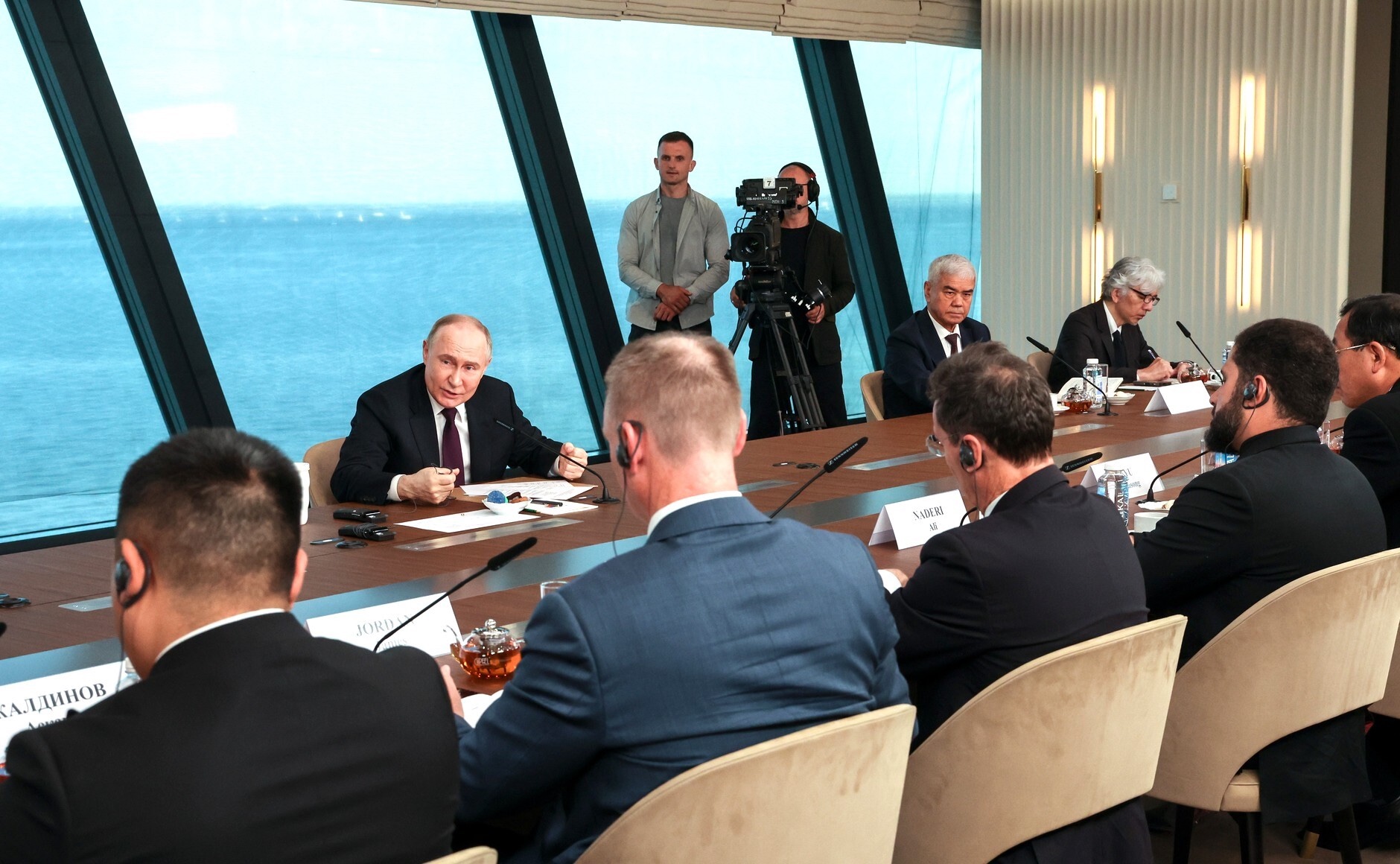In a stark warning to Berlin, Russian President Vladimir Putin outlined today potential retaliatory options if German-supplied weapons were used by Ukraine against targets in Russia. Should that happen, Russia could supply long-range weapons to “regions” around the world where they could be used for strikes against Western targets, he threatened.
Putin’s comments, which were first reported by the Associated Press, were given on the sidelines of the St. Petersburg International Economic Forum, which runs until June 8. The annual forum has long been used by the Russian leader to promote the Russian business sector and attract prospective investors.

Using German-supplied weapons against Russian targets would mark a “dangerous step” on the part of Ukraine, Putin said, which could lead to “very serious problems.”
“That would mark their [Germany’s] direct involvement in the war against the Russian Federation, and we reserve the right to act the same way,” he said. “We will think about it.”
“If they [Germany] consider it possible to deliver such weapons to the combat zone to launch strikes on our territory and create problems for us, why don’t we have the right to supply weapons of the same type to some regions of the world where they can be used to launch strikes on sensitive facilities of the countries that do it to Russia?”
“Now if they [Ukraine] use [German] missiles to strike facilities on the Russian territory, it will completely ruin Russian-German relations,” he indicated.
What exactly this could entail isn’t perfectly clear, but providing weapons to regional actors that are hostile to Germany or other Western nations that have allowed the use of their weapons in direct attacks on Russian soil is a possibility. This proxy model has been the hallmark of Iran’s regional operations against its foes, for instance. Finding such proxies may be a challenge globally as they would be picking a very big fight by executing such actions.
Putin’s comments come after Germany authorized the limited use of its weapons against Russian targets on May 31; specifically to strike inside Russia from near the city of Kharkiv, Ukraine’s second-largest city which is located just 20 miles from the Ukrainian-Russian border. So far, Germany has furnished Ukraine with a range of weapons that could effectively strike targets inside Russia from Kharkiv, including multiple MARS II rocket launchers and ammunition, the German version of the U.S. M270 Multiple Launch Rocket System.
Germany’s decision to authorize Ukraine to use its weapons for the aforementioned purpose, as the above quote alludes to, came after the Biden administration first approved the Ukrainian use of U.S. weapons for the same reason on May 30. A number of other European allies supporting Ukraine, including the U.K., Sweden, the Netherlands, and Poland, among others, have also approved use of weapons on Russian territory they have donated.
“The President recently directed his team to ensure that Ukraine is able to use U.S.-supplied weapons for counter-fire purposes in the Kharkiv region so Ukraine can hit back against Russian forces that are attacking them or preparing to attack them,” a U.S. official told The War Zone at the time. “Our policy with respect to prohibiting the use of [Army Tactical Missile System] ATACMS or long-range strikes inside of Russia has not changed.”
While it is unclear if German weapons have been used inside Russia, evidence has emerged that U.S.-supplied guided artillery has been used to this end. The impact of using U.S.-supplied weapons for counter-fire efforts within Russian borders already appears to have had a positive impact in the Kharkiv region, which you can read about here.
Germany has so far refused to provide Ukraine with long-range Taurus cruise missiles, which have a range of 500 kilometers (roughly 300 miles) in large part over fears that they could be fired deep into Russia; although this stance could end up changing.
The U.S. has also prohibited Ukraine from using its ATACMS against targets in Russia, or any weapons outside of the border region Russia uses to attack Kharkiv. However, White House National Security Council spokesman John Kirby recently left the door open for a possible change in that policy.
So far, Russian officials have repeatedly lashed out over the use of NATO-member weapons against Russian targets, but have taken no discernable action. As such, it remains uncertain how far Putin’s most recent comments are simply saber-rattling tactics or represent a more serious threat.
Contact the author: oliver@thewarzone.com, howard@thewarzone.com
